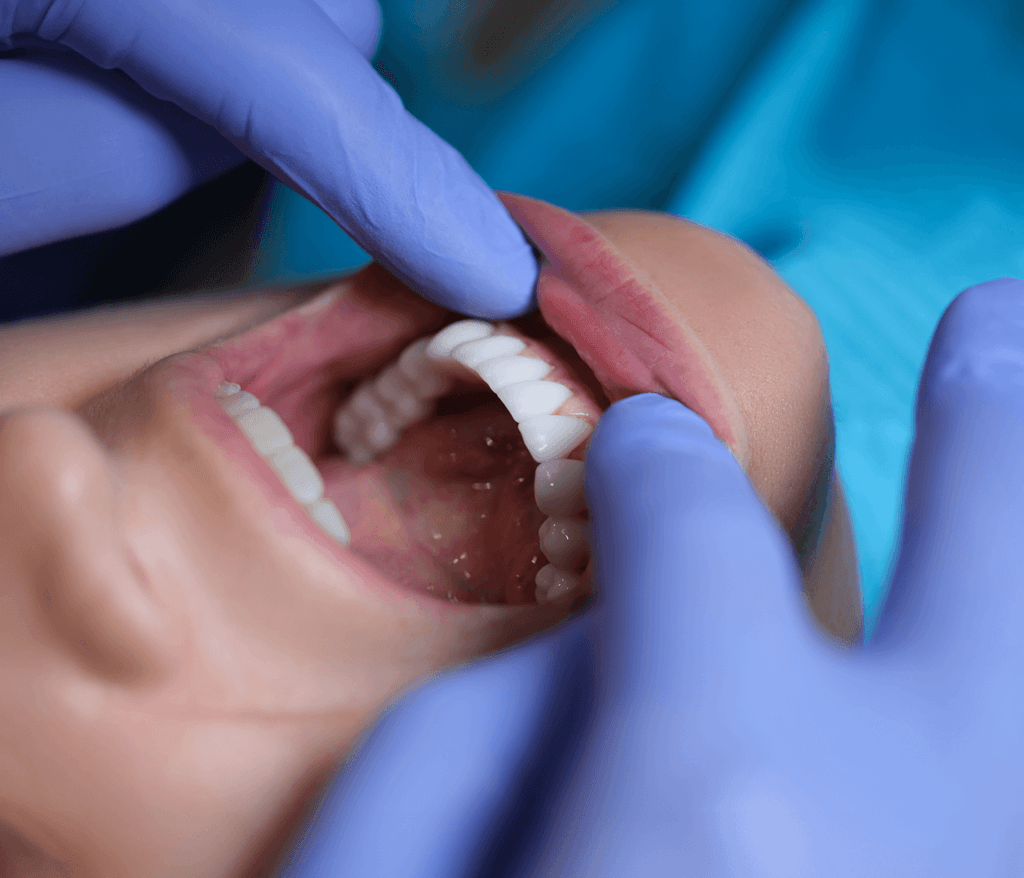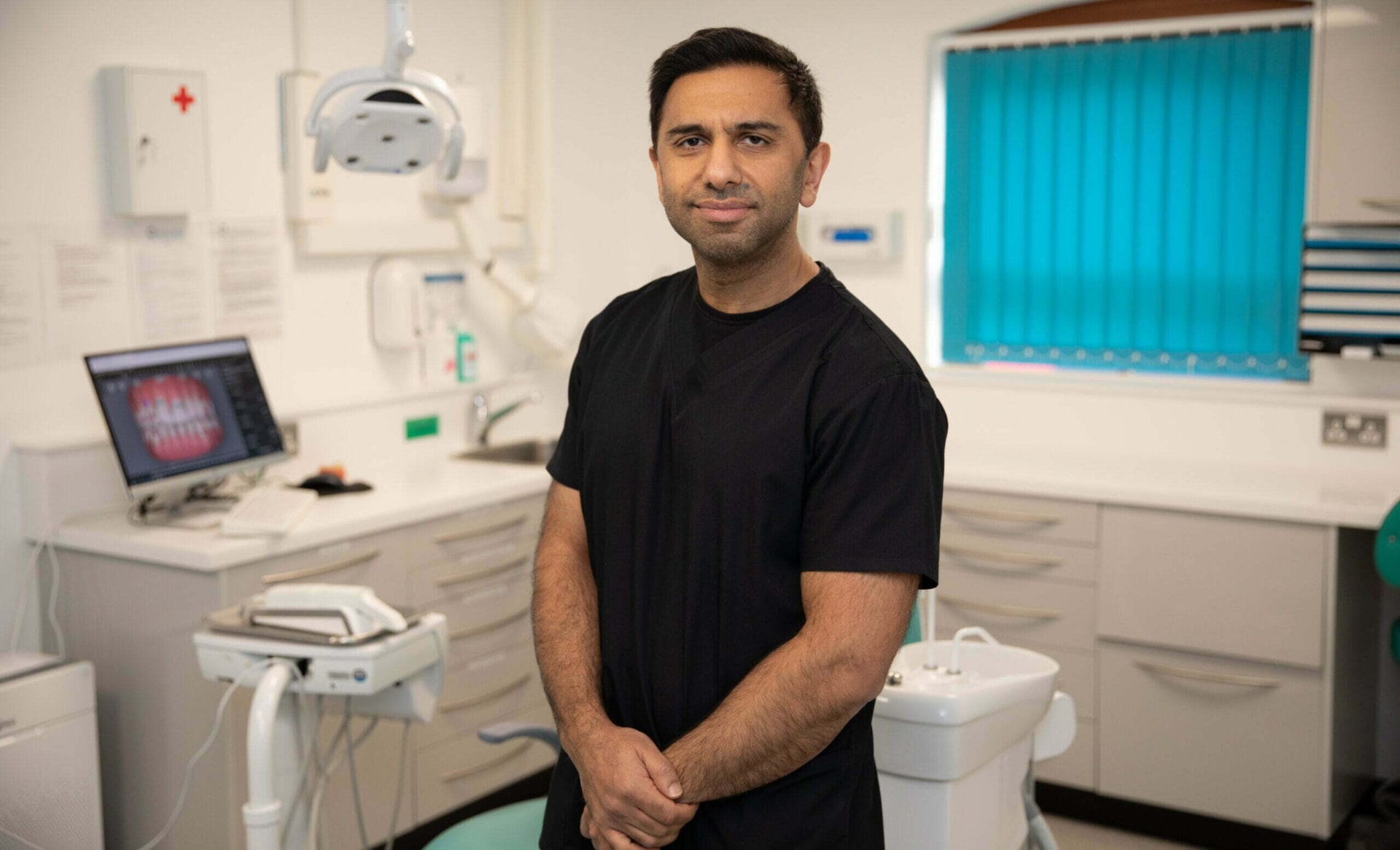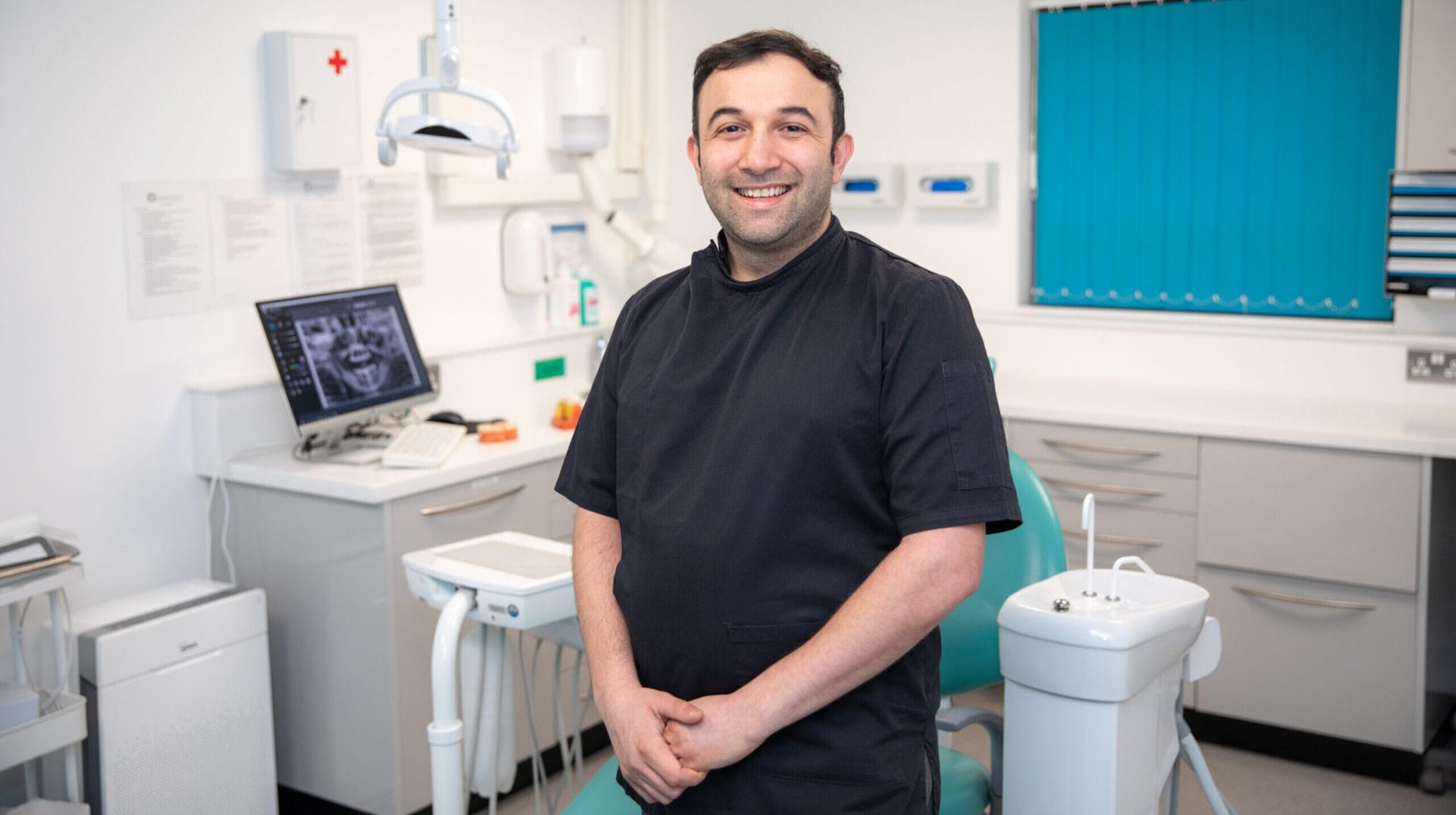
Have you ever wondered how some people seem to have effortlessly perfect smiles? Chances are, they might owe it all to dental veneers – the secret behind many Hollywood-worthy grins.
But what exactly are veneers, and how can they transform your smile? Let’s dive into the world of veneers and uncover everything you need to know.
- What Are Veneers?
- How Do Veneers Work?
- Who Can Benefit from Dental Veneers?
- Veneers vs. Crowns: What’s the Difference?
- The Pros and Cons of Veneers
- The Veneer Fitting Process
- Are Veneers Right For You?
What Are Veneers?
Veneers are custom-made, thin coverings crafted from high-quality dental materials, such as porcelain or tooth-coloured composite. These shells are designed to fit snugly over the front surfaces of your teeth, concealing imperfections and enhancing your smile’s appearance.
How Do Veneers Work?
The beauty of veneers lies in their ability to camouflage cosmetic flaws. Here’s how they work their magic:
- Covering Imperfections: Veneers hide various dental issues, including chips, cracks, gaps, tooth discolouration, misshapen teeth, and more. They act as a protective shield, giving your teeth a flawless appearance.
- Customisation: Veneers are tailored to fit your dental anatomy perfectly. Dentists take into account the size, shape, and colour of your teeth, ensuring a natural and seamless result.
Who Can Benefit from Dental Veneers?
If you want to enhance the appearance of your smile, veneers could be the solution for you. They can help with:
- Chipped or broken teeth.
- Gaps or spaces in your smile (diastema).
- Stains that don’t respond well to teeth whitening.
- Teeth that appear too small.
- Misshapen teeth.
However, it’s important to note that veneers are only suitable if you have good oral health without extensive cavities or gum disease. Prioritise addressing any underlying dental issues before considering cosmetic treatments like veneers.
Who Can Benefit from Dental Veneers?
While both veneers and dental crowns can improve the appearance of your teeth, they serve different purposes:
- Veneers: These are primarily cosmetic dental treatments. They cover only the front surface of a tooth, enhancing its appearance and concealing flaws.
- Crowns: Dental crowns, on the other hand, are more versatile. They cover the entire tooth structure and are often used to restore severely damaged teeth due to decay or trauma. Crowns offer both cosmetic and functional benefits.
The Pros and Cons of Veneers
table {width: 100%;border-collapse: collapse; } th, td { border: 1px solid black;padding: 10px; text-align: center; } th { background-color: #f2f2f2; }
Pros of Veneers | Cons of Veneers |
|---|---|
Whiter and More Even Teeth Veneers can give you a brighter and more uniform smile, enhancing your overall appearance. | Permanent Alteration To fit veneers, a thin layer of enamel on your teeth’s front surface must be removed, which is permanent. |
A Natural Finish Porcelain veneers replicate the light-reflecting qualities of natural teeth, resulting in a lifelike look. | Sensitivity Some patients may experience increased tooth sensitivity after getting veneers. |
Durability With proper care, veneers can last for over a decade, making them a long-lasting cosmetic solution. | Fragility Although porcelain veneers are sturdy, they can break when subjected to strong impacts, such as biting on hard foods or teeth grinding. Broken veneers require repair or replacement. |
Stain-Resistant and Strong Porcelain veneers are more stain-resistant and robust than options like composite bonding. They offer strength comparable to dental crowns. |
The Veneer Fitting Process
If you decide that veneers are right for you, here’s what to expect during the fitting process:
- Step 1 – Tooth Preparation: In most cases, your dentist will need to prepare your teeth for veneers. This involves gently filing down a thin layer of enamel from your teeth’s front surface to ensure the veneers can be securely attached. Don’t worry; there are no nerves in the enamel.
- Step 2 – Impressions: Your dentist will take impressions of your mouth, either using soft putty in a tray or a 3D digital scanner. You may receive temporary veneers to wear while your custom ones are being crafted, which can last for a few weeks.
- Step 3 – Attachment: Once your veneers are ready, they’ll be attached using a strong dental adhesive, adjusted as necessary, and permanently secured in place.
- Aftercare: It’s normal for your gums to feel slightly sore after the procedure, but this discomfort typically subsides within a few days with careful brushing.
Are Veneers Right For You?
Veneers are a fantastic option for achieving a stunning smile makeover. They are a versatile and effective cosmetic dentistry solution, capable of concealing various imperfections and providing long-lasting results.
Just remember, while veneers offer many benefits, it’s important to consider the permanence of the procedure and weigh the pros and cons before making your decision. With the right care, veneers can leave you with a smile that radiates confidence for years to come.
If you’re struggling to make a choice, reach out to our dental experts. We have years of experience in transforming smiles with dental veneers and can help you find the perfect solution for you – your dream smile is just a call away.



















